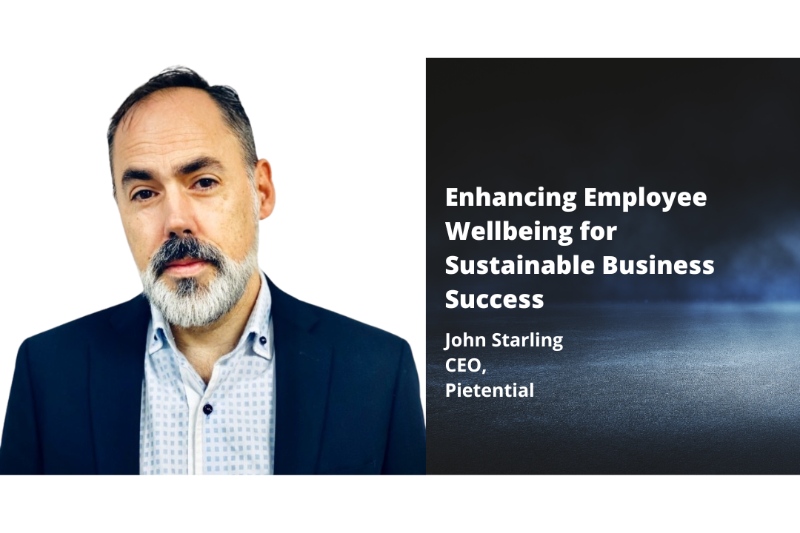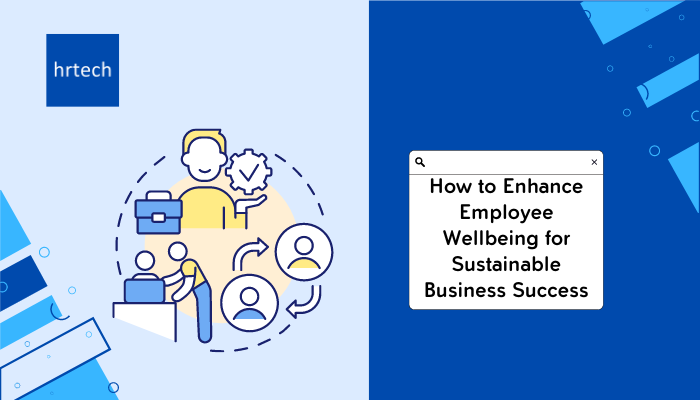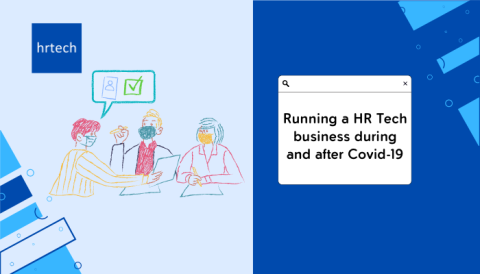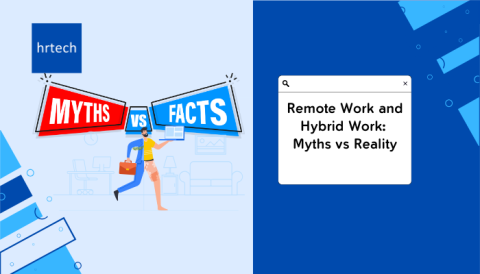Organizations can create a supportive work environment by prioritizing employee welfare, implementing targeted interventions, reducing burnout, and enhancing overall team satisfaction. Data-driven insights are essential.
by John Starling, CEO, Pietential

Employee wellbeing has emerged as a key factor influencing an organization’s performance and longevity. Employees who feel supported, valued, and engaged are more likely to contribute positively to their teams and the company’s success. As companies, organizations, and teams navigate the complexities of the modern workplace, they must prioritize employee wellbeing effectively. This article delves into how a data-driven approach can address common challenges entities face, enabling them to enhance employee wellbeing and achieve sustainable business success.
The Need for Employee Wellbeing Insights
Organizations across diverse industries encounter several common challenges and needs when it comes to employee wellbeing:
-
Identifying Areas of Concern: Organizations need to proactively identify employees who may be experiencing low levels of wellbeing or high levels of stress. Early identification of potential issues – such as a feeling of psychological danger or disconnection from colleagues – enables timely support and intervention.
-
Enhancing Productivity: Employee wellbeing significantly impacts productivity and performance. Understanding the factors that positively influence wellbeing empowers organizations to optimize productivity and foster a more engaged and motivated workforce.
-
Tailored Interventions: Different groups of employees may face unique challenges based on their roles, experiences, and personal demographics. Analyzing demographics and creating cohorts helps entities design and implement targeted interventions and support strategies.
-
Optimizing Resource Allocation: With limited resources, it is essential for organizations to allocate them efficiently to maximize the impact of wellbeing initiatives. Data-driven insights allow for evidence-based decision-making, ensuring resources are channeled effectively.
The Solution: Data-Driven Employee Wellbeing Insights
To address the challenges and needs related to employee wellbeing, companies, organizations, and teams can adopt a data-driven approach to gain valuable insights:
-
Regular Wellbeing Assessments: Conducting regular wellbeing assessments through surveys or other tools enables entities to understand the overall state of their workforce. These assessments evaluate vital aspects such as physical health, emotional wellbeing, work-life balance, and job satisfaction. By collecting data at regular intervals, organizations can identify trends and changes over time.
-
Cohort Analysis: Creating cohorts based on shared characteristics or experiences (e.g., job roles, teams, tenure) allows organizations to track the wellbeing of specific employee groups. Cohort analysis helps identify patterns and trends within these groups, guiding targeted interventions and support programs.

-
Demographic Comparison: Comparing the wellbeing of different demographic groups (e.g., age, gender, department, location) provides valuable insights into how various factors may influence wellbeing outcomes. This analysis can uncover disparities and support the development of tailored interventions to address specific needs.

-
Dynamic Progress Tracking: Continuously monitoring employee wellbeing over extended periods enables entities to identify trends and fluctuations in wellbeing indicators. Early detection of negative changes allows for proactive measures to mitigate potential issues.
The Takeaway
Prioritizing employee wellbeing is paramount for companies, organizations, and teams seeking sustainable business success. By adopting a data-driven approach to gain valuable insights into employee wellbeing, entities can identify areas of concern, optimize resource allocation, and implement targeted interventions effectively.
The challenges and needs businesses and teams face are universal, making focusing on employee wellbeing a crucial aspect of achieving long-term success. A supportive and positive work environment fostered through evidence-based strategies promotes employee satisfaction, engagement, and retention. As entities embrace a data-driven approach, they will be better equipped to navigate the evolving business landscape and achieve sustainable growth in an increasingly competitive world.
Our Solution
For HR professionals and managers, Pietential provides a user-friendly and intuitive platform that enables you to benchmark, improve, and monitor employee wellbeing.

With an in-depth feature set, including customizable demographics, data visualization, and wellbeing improvement exercises, Pietential helps enterprises, SMBs, NGOs, and advisors, promote employee wellbeing and foster a positive work environment. With its Threshold Alerts, Pietential can also act as an early warning system, letting you know when any aspect of employee wellbeing drops below the thresholds you set. The platform offers flexibility in tailoring demographics to an organization’s unique needs, facilitating employee engagement, and driving positive outcomes. And because of the many ways to compare data across both time and demographic cohorts, you’ll gain visibility into which interventions are working and which ones aren’t.
About the Author:

For over 20 years, John Starling built and led management consulting firms focused on growth strategy and personal development. He advised, trained, and consulted hundreds of companies around the world (from start-ups to members of the Fortune 50) and has professionally coached countless individuals.
In 2019, he founded Pietential – The Life Balance and Wellbeing Realization System.
Dedicated to the communities in which he’s lived, John has also founded two youth programs: a mentoring and martial arts school for at-risk young people in Baltimore, Maryland (The School of the Way) and a girls soccer club in South Korea (Pride Girls Soccer). He is also the author of an illustrated rhyming children’s book “Flight of the Platypus – a story of self-discovery.”
John’s life philosophy is “If you can see it you can be it” and he’s dedicated to helping others visualize and improve their wellbeing through Pietential.
Continue Reading: The Science of Mental Health & Wellbeing Metrics in the Workplace





